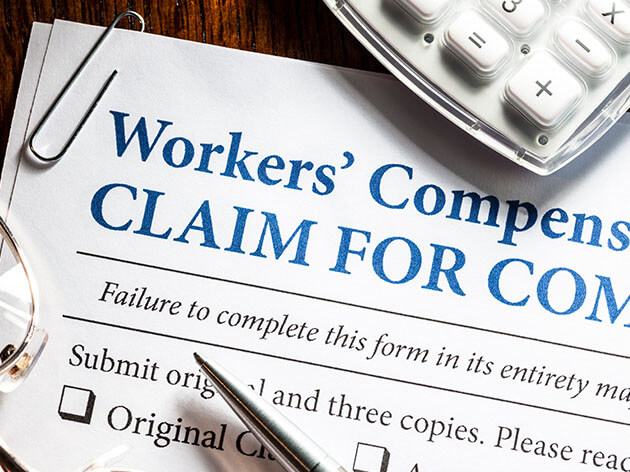In the intricate landscape of business insurance, few types of coverage are as vital and nuanced as workers’ compensation insurance. For any enterprise, large or small, understanding the nuances of workers’ compensation insurance quotes is essential. This comprehensive guide aims to illuminate the complexities of workers comp insurance quote, empowering business owners to make informed decisions regarding their coverage needs.
What is Workers’ Compensation Insurance?
Workers’ compensation insurance is a type of insurance that provides medical benefits and wage replacement to employees injured during the course of their employment. It serves as a crucial safety net, protecting both employers and employees in the event of workplace accidents or injuries. In the United States, workers’ compensation insurance is mandatory in most states, with requirements varying depending on the size and nature of the business.
The Importance of Workers Comp Insurance Quote
Securing appropriate workers’ compensation insurance coverage is not only a legal requirement but also a moral obligation for employers. However, navigating the process of obtaining coverage can be daunting, especially for small business owners or those unfamiliar with insurance terminology. This is where workers’ comp insurance quotes come into play. A workers’ comp insurance quote provides essential information about coverage options, premiums, deductibles, and other terms and conditions, enabling business owners to make informed decisions about their insurance needs.
Factors Influencing Workers Comp Insurance Quote
Several factors influence the cost of workers’ compensation insurance quotes, including:
- Industry and Risk Classification: Different industries have varying levels of risk associated with them. Businesses operating in high-risk industries such as construction or manufacturing typically face higher insurance premiums due to the increased likelihood of workplace injuries.
- Number of Employees: The size of a company’s workforce directly impacts its workers’ compensation insurance costs. Generally, larger companies with more employees will pay higher premiums.
- Claims History: A business’s claims history, including the frequency and severity of past workplace injuries, can significantly affect insurance premiums. A history of frequent claims may result in higher premiums.
- Safety Measures: Insurers often take into account the safety measures and protocols implemented by a business to prevent workplace injuries. Companies with robust safety programs may be eligible for discounts on their insurance premiums.
- Location: Workers’ compensation insurance rates can vary by state due to differences in regulations, healthcare costs, and other factors.
Understanding Workers Comp Insurance Quote
When requesting a workers’ compensation insurance quote, it’s essential to understand the various components that make up the quote:
- Premium: The premium is the amount a business pays for workers’ compensation insurance coverage. It is typically calculated based on the company’s payroll and the classification of its employees’ job duties.
- Deductible: A deductible is the amount that the insured must pay out of pocket before the insurance coverage kicks in. Choosing a higher deductible can lower premiums but may result in higher out-of-pocket expenses in the event of a claim.
- Coverage Limits: Workers’ compensation insurance quotes will specify the coverage limits, which determine the maximum amount the insurer will pay for medical expenses, wage replacement, and other benefits related to workplace injuries.
- Exclusions: It’s essential to review any exclusions listed in the workers’ comp insurance quote carefully. Exclusions are situations or circumstances not covered by the insurance policy and may vary depending on the insurer and policy.
Tips for Obtaining Workers Comp Insurance Quote
To ensure that you receive accurate and competitive workers’ compensation insurance quotes, consider the following tips:
- Work with a Reputable Agent or Broker: An experienced insurance agent or broker can help you navigate the complexities of workers’ compensation insurance and obtain quotes from multiple insurers to find the best coverage options for your business.
- Provide Accurate Information: Be prepared to provide accurate information about your business, including payroll figures, employee job classifications, and safety protocols. Providing incomplete or inaccurate information could result in inaccurate quotes.
- Review and Compare Quotes: Once you receive workers’ comp insurance quotes from multiple insurers, take the time to review and compare them carefully. Pay attention to differences in coverage limits, deductibles, and exclusions, as well as the overall cost of premiums.
- Ask Questions: Don’t hesitate to ask questions if you’re unsure about any aspect of the workers’ compensation insurance quote. A reputable insurance agent or broker should be able to provide clarification and guidance to help you make an informed decision.
Also read: A Comprehensive Review of USAA Auto Insurance Quotes
Navigating the process of obtaining workers’ compensation insurance coverage can be complex, but understanding workers’ comp insurance quotes is essential for ensuring that your business is adequately protected. By considering the factors that influence insurance premiums, understanding the components of workers’ comp insurance quotes, and following the tips outlined in this guide, business owners can make informed decisions about their insurance needs. Ultimately, investing in comprehensive workers’ compensation insurance coverage is not only a legal requirement but also a sound business decision that can protect both employers and employees in the event of workplace injuries.


